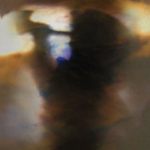|
|
 |
Dusted Reviews
Artist: Animal Collective Album: Fall Be Kind Label: Domino Review date: Dec. 11, 2009 |

|
|
|
 |
By way of decrying a society that left its citizens unbearably restrained, Edith Wharton describes how in New York in the 1870s, women would order dresses from their Paris dressmakers and then leave them in tissue paper at least two years before wearing them in public; the thought of showing them "in advance of the fashion" was unforgivably vulgar. Social life has changed, but cultural life seems just as restricted now – even Animal Collective are held back by trends that seem a couple of years old (and that they helped to invent).
When I think back on 2009, I’ll first remember how our impoverished aesthetic generation repeatedly scraped the resin from the cultural trash barrel. Every second person is wearing neon leggings, and the ones who aren’t rock a ‘70s aesthetic, with high-waisted jeans and moccasins. Christmas sweaters are getting impossible to find at the thrift store. Ska revival. Garage rock revival. It never ends.
Fall Be Kind really mines the depths of the b-bin: musical theater + jam band + Putumayo. Liking it feels goofy, even though it’s pretty good. The references seem to be in good faith – Animal Collective always sounds like a band doing exactly what it wants. Over the years, this embrace of artistic freedom paradoxically leads the band further and further into postmodernism. Disparate styles feed back through the AC sensibility and come out sounding inevitable, expressions of the zeitgeist simultaneous with its creation. Kind of like how Vivienne Westwood "invented" punk and Marc Jacobs "invented" grunge.
In constantly referring to other art and hence the process of making art, the everything-all-at-once style limits lyrical themes and prevents musical progression. Even before this style was the norm, getting famous was a straitjacket for a lot of bands because of the endless touring; making songs that have a universal meaning is difficult when a band’s existence becomes only about being a band. Fall Be Kind shows AC are struggling with this, in both form and content (though not at the same time). "On a Highway" is the loneliest, most road-soaked track: "On a highway / I’m sick from too much reading / Jealous of Noah’s reading / Can’t help my brain from thinking." The songs improve as the lyrics sink in, partly because they ache with missing the self and loved ones: "On a highway / Thinking of the one who / I left alone and hoping / I don’t know how I’m coping." This is the best and boldest song on the EP because it strips out instrumental flourish to focus on singing. Other songs become mired in Pan pipes and Over the Rainbow celestial synthesizer gauze ("Graze"). This retreat into familiar, known genres evoke an animal’s licking wounds in a comfortable hole until it regains its strength.
Animal Collective’s ultimate flash of brilliance on Sung Tongs, in which they started to make songs in a totally new way – their invention of a new mode – is difficult to sustain as they become involved in sampling and sausage making. Hopefully, as they get used to a new life, the familiar will cease to hold them back.
By Josie Clowney
|







